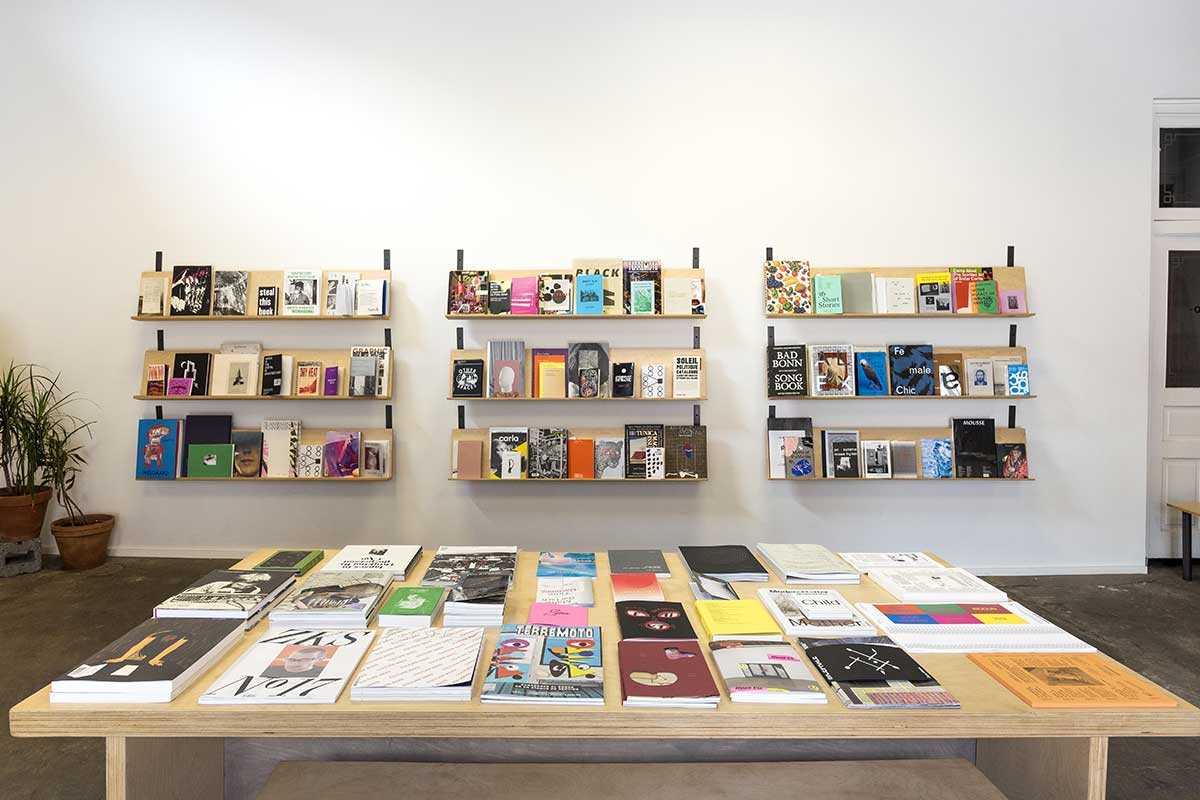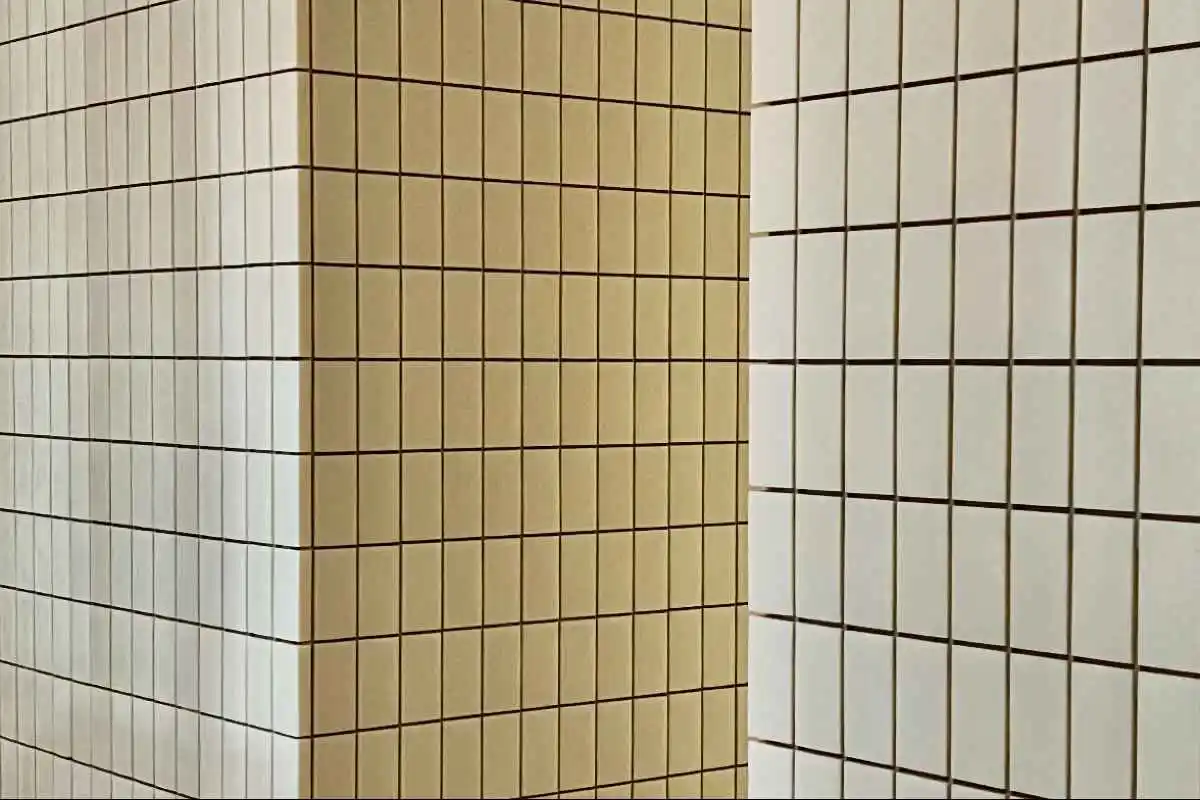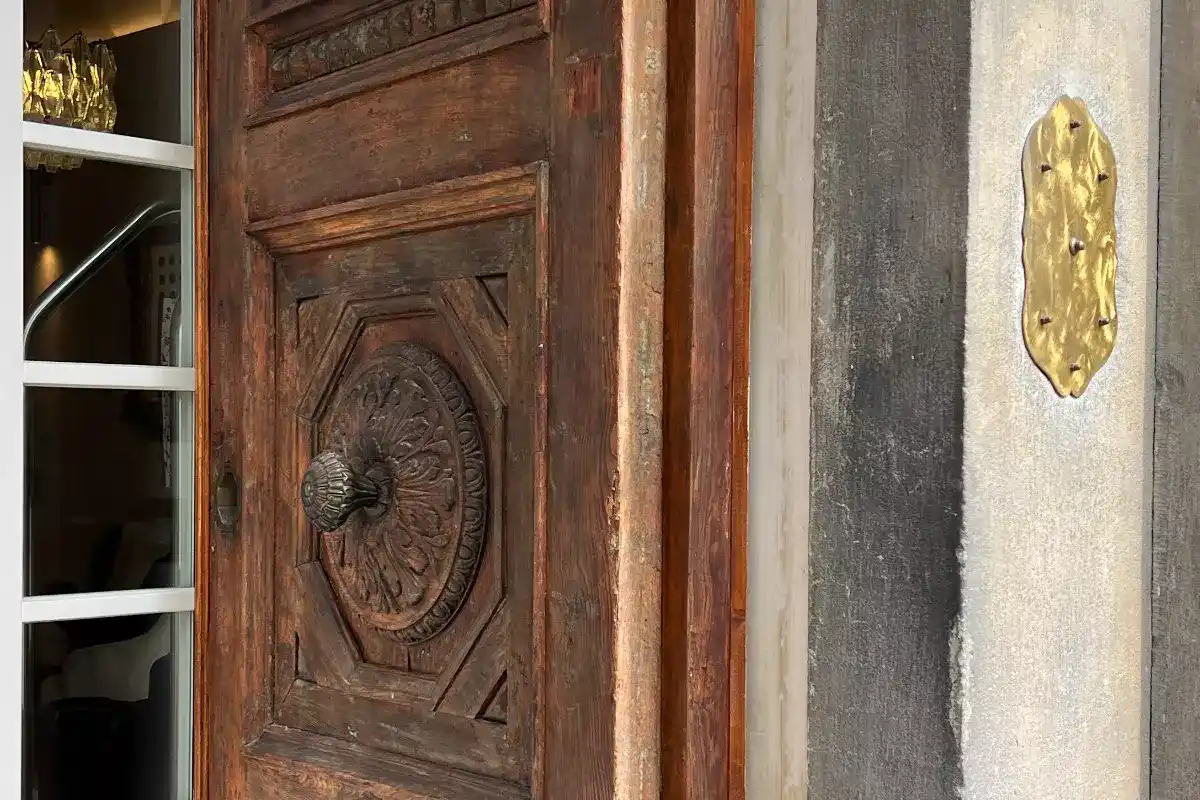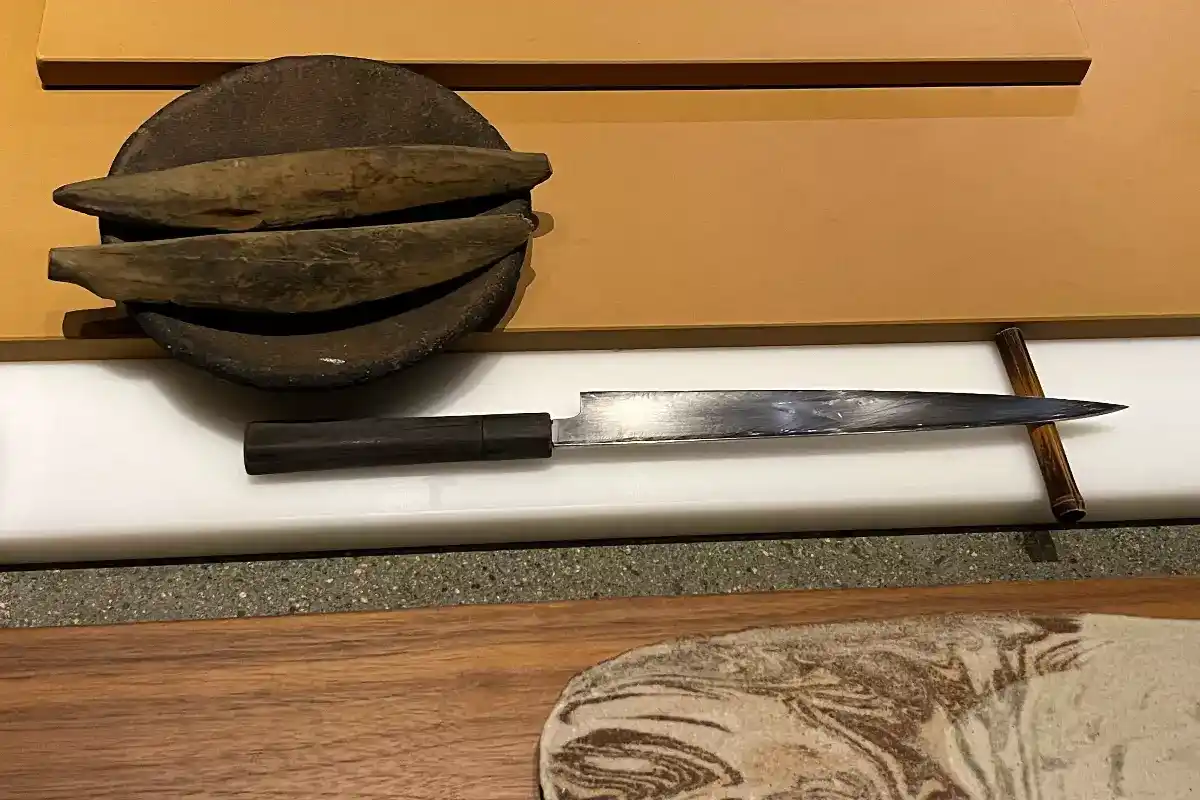Following in the footsteps of artist and poet Ulises Carrión; five arts professionals run a collective with self-publishing on the frontline. «Everything happens in one room»
Ulises, Philadelphia
When hearing of ‘Ulises’, one’s mind goes to Ulysses, the protagonist of Homer’s epic poem The Odyssey or to James Joyce’s masterpiece. Hearing the name in Philadelphia, one thinks of a bookshop and collective founded in 2016 by Lauren Downing, Ricky Yanas, Nerissa Cooney, Kayla Romberger, and Gee Wesley. When baptizing their project, the co-founders were not referencing the Greek hero nor the Irish novel, but Ulises Carrión. A Mexican-born poet and conceptualist. His manifest The New Art of Making Books (1975) was pioneering in defining the artist’s book genre. In the early 1970s Amsterdam, he had founded Other Books and so. The first bookstore-gallery dedicated to artists’s publications, zines and multiples. «When brainstorming ideas during weekly meetings, we kept going back to Carrión’s ideas and practice. Naming our project after him was a tribute to him and his legacy», Downing explains.
Ulises’ five co-founders
Having working-class backgrounds and a passion for the arts that overcame their parents’ pragmatism. As Yanas points out, «I was born in San Antonio, Texas, from a car salesman. I could not imagine I would become an artist. After my BA, I enrolled at the Studio Art program at the University of Texas at Austin. I worked as a gallery guide and part-time artist’s assistant. Teaching at the photography department at Texas State University, I began my career in education. In Philadelphia, I lecture at Tyler School of Art and Architecture, and hold a course titled ‘Race, identity and experience in American art’».
Downing started out her academic career studying business at Pennsylvania State University. However she ended up triple majoring in Finance, French and Art History. She became an arts organizer and, in 2014, the curatorial assistant at the Philadelphia Institute of Contemporary Art, where she is now Executive Assistant to Director Zoë Ryan. «Aside Ulises, Ricky and I have a full-time job, as do the other co-owners», says Downing. «Gee Wesley was a curatorial fellow at ICA, program director at Recess in Brooklyn, NY. works as a curator, arts organizer and educator. Nerissa Cooney is Director of Programming at Mana Contemporary, an arts center in Jersey City, New Jersey. Kayla Romberger teaches independent publishing and print culture at the University of Pennsylvania and Tyler. Ulises is a project we work on in our free time, which I would call ‘overtime’», Downing continues.
Ulises starting as a non-profit store-front bookshop
The co-owners launched a fundraising campaign on Indiegogo. They also applied for grants, which are essential for programming. «While looking for a location, Tim Belknap, artist and co-director of the Icebox Project Space, offered us a garage he owned on 31 E Columbia Ave, in Fishtown neighborhood. We turned it into a white-cube space, taking inspiration from Good Weather Gallery; a DIY space that originated from a garage. My friend, designer Jody Harrington, provided furniture and shelving», Downing explains.
As Yanas continues, «We opted for rolling bookshelves that would allow us to make the space flexible and change it according to our projects». Over the past five years, Ulises has turned from a gallery-bookstore into an incubator of projects. According to Downing, «At Ulises, everything happens in one room. A visitor coming to the store could enter while a performance, an opening, or book launch are taking place». For instance, democratization of contemporary curatorial practice is the driving concept. «A hierarchy privileging exhibition over publications and programming is the norm. We go the opposite direction, planning an exhibition around a publication, a performance or an artist’s talk», Yanas continues.
The store features independent publications
Contemporary-art, design, photography, critical studies and visual culture; along with magazines and artist’s books. «We include publications from institutions such as the ICA and the Philadelphia Art Museum, but we privilege titles you would not find in general-bookstores in the city. Titles from Stenberg Press, a Berlin-based publishing house of art and cultural criticism, are a task to find elsewhere in the city. Genderfail, a Brooklyn-based publishing platform fostering queer subjectivity, and High Tide, a Philadelphia gallery with a publishing imprint, are names included in our selection. Our publishers use risograph printing to guarantee textured prints with vibrant colors on quality paper while keeping costs low».
Downing points out. «To give you an example», Yanas continues, «’I’m literally obsessed with Kim Kardashian’, a zine by artist Liz Barr, is one of our bestsellers. It costs 5 dollars». Participation in book fairs helps keep an eye on international publications. In 2019, Ulises participated in the NY Book Art Fair, Odds and Ends Art Book Fair in New Haven, and Material Art Fair in Mexico City. «Fairs are where the international book-lovers community gathers to exchange ideas and build relationships. Nobody does it for the money, but for a passion in publishing», says Yanas. «In addition, Book fairs are an opportunity to purchase international independent publications that would be expensive to import».
Working with artists and contributors
Ulises is conceived as a magazine; taking inspiration from Aspen, a periodical published between 1965 and 1971. It questioned the physical and thematic structure of a periodical. They worked with artists and contributors that would generate ephemera, recorded content, cassette tapes and records. Furthermore, their practice echoed the roots of the word ‘magazine’, deriving from the Arabic makzin, or storehouse. A space gathering disparate materials unified by an underlying concept.
Each season at Ulises, started out following a quarterly format. It invites contributors to present projects in response to a given theme. Active voice, intimacy, education, migrations, keeping publications on the frontline. In 2017, Ulises launched a three-part publishing residency called Publishing as Practice, aiming at exploring publishing as an incubator for editorial, curatorial and artistic experimentation. Furthermore, the first chapter hosted Hardworking Goodlooking, a publishing imprint and graphic design based in the Philippines. Their residency at Ulises allowed the team members to work under one roof for the first time.
The book around the experience of Publishing as Practice
«They took over Ulises for three-weeks», Downing explains. «They redesigned the space and activated it with archival research and talks discussing the political situation in the Philippines. These became the source material for a publication». Los Angeles-based artist Martine Syms took part in the residency as Dominica. The publishing imprint she founded in 2011 to explore blackness. As Ricky points out, «Syms was not present at Ulises. However it transformed it into a shop selling screen-printed apparel, featuring texts and visual material. Also it transformed the Dominica and our website into a platform conceived as a place of social exchange».
Bidoun, a non-profit organization focused on art and culture from the Middle East and its Diasporas. It was the third and final resident of Publishing as Practice. They staged a partial version of the Bidoun Library. A 2009 presentation of printed matter documenting the way people have attempted to define the Middle East. In addition, the screening of trailers from ‘B Movies’, Iranian-American movies produced in Los Angeles; presented the interpretation of Iranian diasporic directors of Hollywood cinema. «Considering the energy and enthusiasm of participants, we decided to publish a book around the experience of Publishing as Practice».
Counting on book sales and grants
When the pandemic started out, Ulises was to move locations. Two subway stops further into Kensington neighborhood. «We are renovating a three-story house, where the ground floor will be dedicated to publications. We are discussing the possibility of using the second and third floor for exhibitions, performances, and projects. Another option is to use these spaces as studios/apartments for future residencies, which are on our agenda» says Downing.
According to Yanas, «The neighborhood will offer an opportunity for Ulises. To affirm its identity as a community space. Kensington is what Fishtown was years ago. A working-class neighborhood where gentrification had not started. We will work for and with the community. Allowing creatives to use our space for free. We are in contact with a nearby school to engage kids and teenagers. We have them in mind when thinking about turning our basement into a design lab. The idea is to invite graphic designers to hold workshops for the students and to offer them free print services».
To fund such projects, Ulises will have to continue counting on book sales and grants. Renting the space to host conferences and seminars of established institutions is taken into consideration. This as long as their mission aligns with Ulises’. An e-shop is on the lineup. «Being a non-profit institution, we have prioritized ‘in person’ projects and sales over our online presence. To conclude, our future e-shop will be conceived as a curatorial platform; featuring a selection of titles at a time, according to ongoing projects».
Ulises
Philadelphia, United States




















